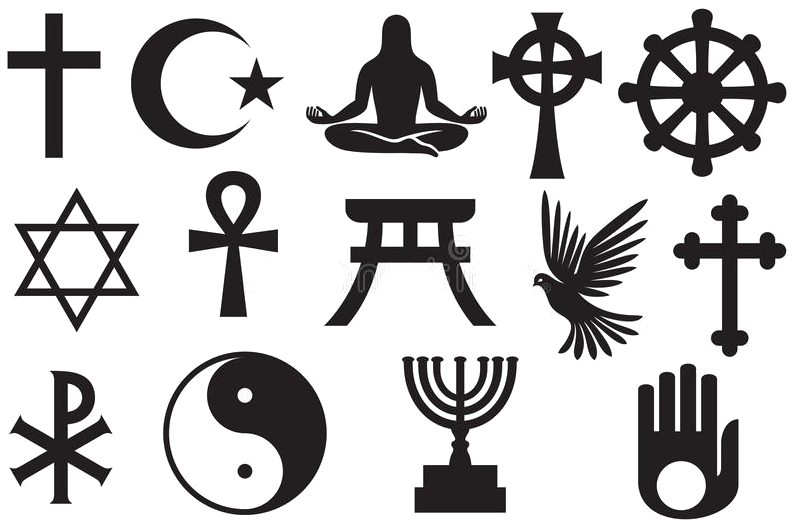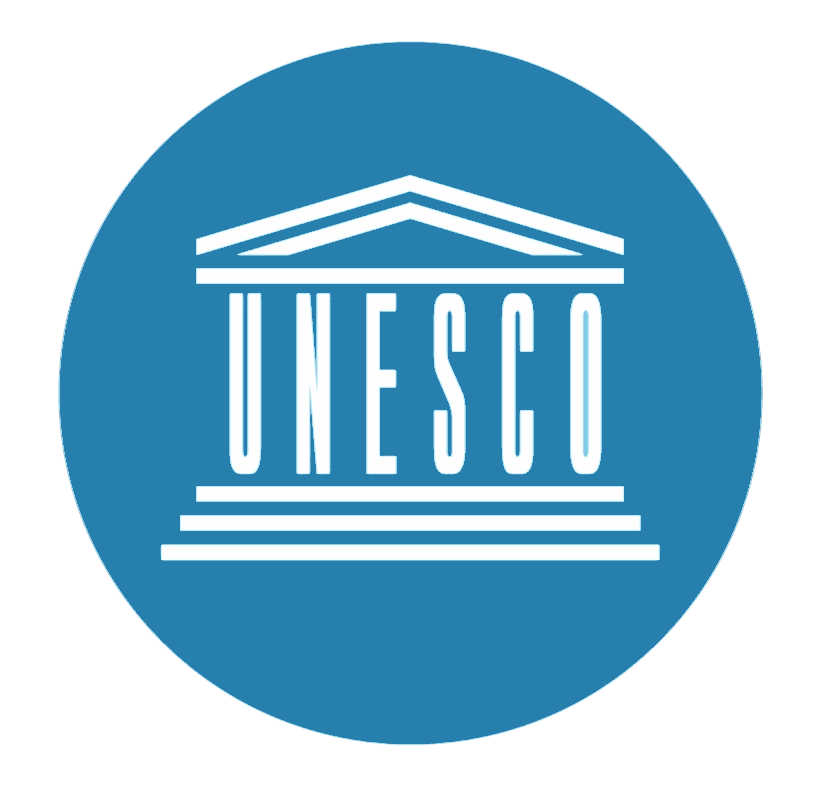
Der Daoismus (chin. 道教 dàojiào „Lehre des Weges“), gemäß anderer Umschriften auch Taoismus, ist eine chinesische Philosophie und Religion und wird als Chinas eigene und authentisch chinesische Religion angesehen. Seine historisch gesicherten Ursprünge liegen im 4. Jahrhundert v. Chr., als das Daodejing (in älteren Umschriften: Tao te king, Tao te ching …) des Laozi (Laotse, Lao-tzu) entstand.
Neben Konfuzianismus und Buddhismus ist der Daoismus eine der „Drei Lehren“, die China maßgeblich prägten. Auch über China hinaus haben die „Drei Lehren“ wesentlichen Einfluss auf Religion und Geisteswelt der Menschen ausgeübt. In China beeinflusste der Daoismus die Kultur in den Bereichen der Politik, Wirtschaft, Philosophie, Literatur, Kunst, Musik, Ernährungskunde, Medizin, Chemie, Kampfkunst und Geographie. (Quelle:Wikipedia)
道教(どうきょう、拼音: )は、中国三大宗教(三教と言い、儒教・仏教・道教を指す)の一つである。中国の歴史記述において、他にも「道家」「道家の教」「道門」「道宗」「老氏」「老氏の教」「老氏の学」「老教」「玄門」などとも呼称され、それぞれ若干ニュアンスの違いがある[1]。そのため「道教」の定義については、学者の間では論争が行われている。
道教は漢民族の伝統的な宗教とされる。中心概念の道(タオ)とは宇宙と人生の根源的な不滅の真理を指す。道の字は辶(しんにょう)が終わりを、首が始まりを示し、道の字自体が太極にもある二元論的要素を表している。この道(タオ)と一体となる修行のために錬丹術を用いて、不老不死の霊薬、丹を錬り、仙人となることを究極の理想とする。それはひとつの道に成ろうとしている。
道教では、道は学ぶことはできるが教えることはできないと言われる[2]。言葉で言い表すことのできる道は真の道ではないとされ、道士の書物や言葉は道を指し示すものに過ぎず、真の「恒常不変の道」は各自が自分自身で見出さなくてはならないとされている。
神仙となって長命を得ることは道を得る機会が増えることであり、奨励される。真理としての宇宙観には多様性があり、中国では儒・仏・道の三教が各々補完し合って共存しているとするのが道教の思想である。食生活においても何かを食することを禁ずる律はなく、さまざまな食物を得ることで均衡が取れ、長生きするとされる。 また、拳法を通じて「気」を整え精神の安定を図る、瞑想によって「無為を成す」ことも道への接近に有効であるという[2]。
全世界で道教の信徒を自認する人は約三千万人程度であり[2]、 現在でも台湾や東南アジアの華僑・華人の間ではかなり根強く信仰されている宗教である。中華人民共和国では文化大革命によって道教は壊滅的な打撃を受けたが、民衆の間では未だにその慣習が息づいている。現在では共産党政権下でも徐々に宗教活動が許され、その宗教観の修復が始まっている。
老荘すなわち道家の思想と道教とには直接的な関係はないとするのが、日本及び中国の専門家の従来の見解であった。しかし、当時新興勢力であった仏教に対抗して道教が創唱宗教の形態を取る過程で、老子を教祖に祭り上げ、大蔵経に倣った道蔵を編んで道家の書物や思想を取り入れたことは事実で、そのため西欧では、19世紀後半に両方を指す語としてタオイズム(Tao-ism)の語が造られ、アンリ・マスペロを筆頭とするフランス学派の学者たちを中心に両者の間に因果関係を認める傾向があった。それを承けて、日本の専門家の間でも同様な見解を示す向きも多かったが[3]、近年、欧米では術語として、Daoismの語が用いられるようになり、道家と宗教としての道教(the religion of Daoism or the Daoist religion)を区別している。
Daoism (/ˈdaʊɪzəm/, /ˈdaʊ-/), or Taoism (/ˈtaʊ-/), is a philosophical or religious tradition of Chinese origin which emphasises living in harmony with the Dao (Chinese: 道; pinyin: Dào; literally: 'the Way', also romanised as Tao). The Dao is a fundamental idea in most Chinese philosophical schools; in Daoism, however, it denotes the principle that is the source, pattern and substance of everything that exists.[2][3] Daoism differs from Confucianism by not emphasising rigid rituals and social order, but is similar in the sense that it is a teaching about the various disciplines for achieving "perfection" by becoming one with the unplanned rhythms of the universe called "the way" or "dao".[2][4] Daoist ethics vary depending on the particular school, but in general tend to emphasise wu wei (action without intention), "naturalness", simplicity, spontaneity, and the Three Treasures: 慈 "compassion", 儉 "frugality", and 不敢為天下先 "humility".
The roots of Daoism go back at least to the 4th century BCE. Early Daoism drew its cosmological notions from the School of Yinyang (Naturalists), and was deeply influenced by one of the oldest texts of Chinese culture, the I Ching (Yi Jing), which expounds a philosophical system about how to keep human behaviour in accordance with the alternating cycles of nature. The "Legalist" Shen Buhai (c. 400 – c. 337 BCE) may also have been a major influence, expounding a realpolitik of wu wei.[5] The Dao De Jing, a compact book containing teachings attributed to Laozi (老子; Lǎozǐ; Lao³ Tzŭ³), is widely considered the keystone work of the Daoist tradition, together with the later writings of Zhuangzi.
Daoism has had a profound influence on Chinese culture in the course of the centuries, and Daoists (道士; dàoshi, "masters of the Dao"), a title traditionally attributed only to the clergy and not to their lay followers, usually take care to note distinction between their ritual tradition and the practices of Chinese folk religion and non-Taoist vernacular ritual orders, which are often mistakenly identified as pertaining to Daoism. Chinese alchemy (especially neidan), Chinese astrology, Chan (Zen) Buddhism, several martial arts, traditional Chinese medicine, feng shui, and many styles of qigong have been intertwined with Daoism throughout history. Beyond China, Taoism also had influence on surrounding societies in Asia.
Le taoïsme (chinois: 道教, pinyin: dàojiào, « enseignement de la voie ».) est un des trois piliers de la philosophie chinoise avec le confucianisme et le bouddhisme, et se fonde sur l'existence d'un principe à l’origine de toute chose, appelé « Tao ».
Plongeant ses racines dans la culture ancienne, ce courant se fonde sur des textes, dont le Tao Tö King de Lao Tseu, le Lie Tseu et le Zhuāngzǐ de Tchouang Tseu, et s’exprime par des pratiques qui influencèrent de façon significative tout l’Extrême-Orient, et même l'Occident depuis le XXe siècle. Il apporte entre autres :
- une mystique quiétiste, reprise par le bouddhisme chán (ancêtre du zen japonais) ;
- une éthique libertaire qui inspira notamment la littérature ;
- un sens des équilibres yin yang poursuivi par la médecine chinoise et le développement personnel ;
- un naturalisme visible dans la calligraphie et l’art.
Ces influences, et d’autres, permettent de comprendre ce qu’a pu être cet enseignement dans ses époques les plus florissantes.
Il taoismo o daoismo, termine di conio occidentale, designa le dottrine a carattere filosofico e mistico, esposte principalmente nelle opere attribuite a Laozi e Zhuāngzǐ (composte tra il IV e III secolo a.C.), sia la religione taoista, istituzionalizzatasi come tale all'incirca nel I secolo d.C.[2]. Di queste le prime rappresentano in realtà l'esito di una sacralità naturale percepita in senso mistico e che risale alla più antica preistoria e alla storia antica della Cina, in seguito espressa per aforismi e similitudini a sfondo sacrale nelle opere dei due autori sopra ricordati[senza fonte]. Con il progressivo strutturarsi dell'Impero Cinese il Tao fu in seguito istituzionalizzato e utilizzato, a partire dalla sua ridefinizione nelle opere di Confucio, ad uso e consumo dello "Stato positivo", allo scopo di ammaestrare le varie componenti sociali all'utile dello Stato. Essa è basata sul Dao (in cinese "la via"), il principio indifferenziato che dà origine al cosmo[senza fonte]. Non possiede un insegnamento fondamentale come il confucianesimo o un credo e pratica unitari. È principalmente una religione cosmica, centrata sul posto e la funzione dell'essere umano, di tutte le creature e dei fenomeni in esso.[3] Nel tempo se ne sono sviluppate diverse scuole e interpretazioni. Nonostante la distribuzione ubiquitaria in Cina e la ricchezza di testi, si tratta probabilmente della meno conosciuta tra le maggiori religioni al mondo[4].
El taoísmo o daoísmo (en chino simplificado y tradicional: 道教 ; en pinyin : dàojiào ; literalmente 'enseñanza del camino') es una tradición filosófica y religiosa de origen chino la cual enfatiza vivir en armonía con el tao (en chino simplificado y tradicional: 道; en pinyin: dào; literalmente: 'el camino', también romanizado como dao). La palabra china 道 tao (o dao, dependiendo de la romanización que se use), se suele traducir por 'vía' o 'camino', aunque tiene innumerables matices en la filosofía y las religiones populares chinas.
El tao es una idea fundamental en la mayoría de las escuelas que forman parte de la filosofía china; sin embargo, para el taoísmo es referido como el principio de unidad absoluta, y al mismo tiempo mutable, que conforma la realidad suprema y el principio cosmogónico y ontológico de todas las cosas.1 Así, para los taoístas el tao constituye la fuente, el patrón y la sustancia de todo lo existente.23
El Dào Dé Jīng (en chino: 道德經) también conocido como Tao Te King o Tao Te Ching, es el libro que condensa las enseñanzas atribuidas al filósofo Lao-Tse (también llamado Lao Tzu, Lao Zi, Laozi (en chino simplificado y tradicional: 老子; en pinyin: lǎozǐ; literalmente 'viejo maestro') o Laocio.4 Y aunque la existencia histórica de tal personalidad aún se debate, el libro es considerado como clave para la tradición taoísta. Junto con el Zhuangzi se consideran los textos clave de la tradición.5
Y aunque los valores éticos taoístas varían dependiendo de las distintas escuelas, por lo general tienden a enfatizar el wu wei («la no acción» o acción sin intención), la naturalidad, la simplicidad, la espontaneidad, y sobre todo, los «Tres Tesoros»: 慈 «la compasión», 儉 «la frugalidad», y 不敢為天下先 «la humildad», mientras que pone menos énfasis en las normas y el ritual (en oposición al confucianismo).
El objetivo fundamental de los taoístas es alcanzar la inmortalidad, si bien, a veces no se entiende esta literalmente, sino como longevidad en plenitud. De la misma manera, se decía que las personas que vivían en armonía con la naturaleza eran inmortales. Lao-Tse fue deificado como dios taoísta ―un inmortal― encabezando un enorme panteón de héroes folclóricos, generales famosos y sabios, todos los cuales alcanzaron la inmortalidad. Sin embargo, la antigua forma del taoísmo era la de una corriente filosófica y no una religión, por lo que los antiguos pensadores interpretaban por «inmortalidad» el hecho de autosuperación del propio ser en comunidad con el entorno, lo que implica buscar la superación y el progreso personal y colectivo, de acuerdo con la mutación constante que enseña el taoísmo. Por otra parte, el logro de la inmortalidad a través de la alquimia externa (waidan) y la alquimia interna (neidan) fue un objetivo importante para muchos taoístas históricamente.6
Даоси́зм (кит. упр. 道教, пиньинь: dàojiào) — учение о дао или «пути вещей», китайское традиционное учение, включающее элементы религии и философии[1][2]. Обыкновенно различаются даосизм как определённый стиль философской критики (дао цзя) и даосизм как совокупность духовных практик (дао цзяо), но это деление достаточно условно. Под дао цзя подразумевают преимущественно доциньский даосизм, связываемый с текстами, авторство которых приписывается Лао-цзы и Чжуан-цзы[3].




 Architecture
Architecture
 History
History
 Art
Art
 World Heritage
World Heritage



